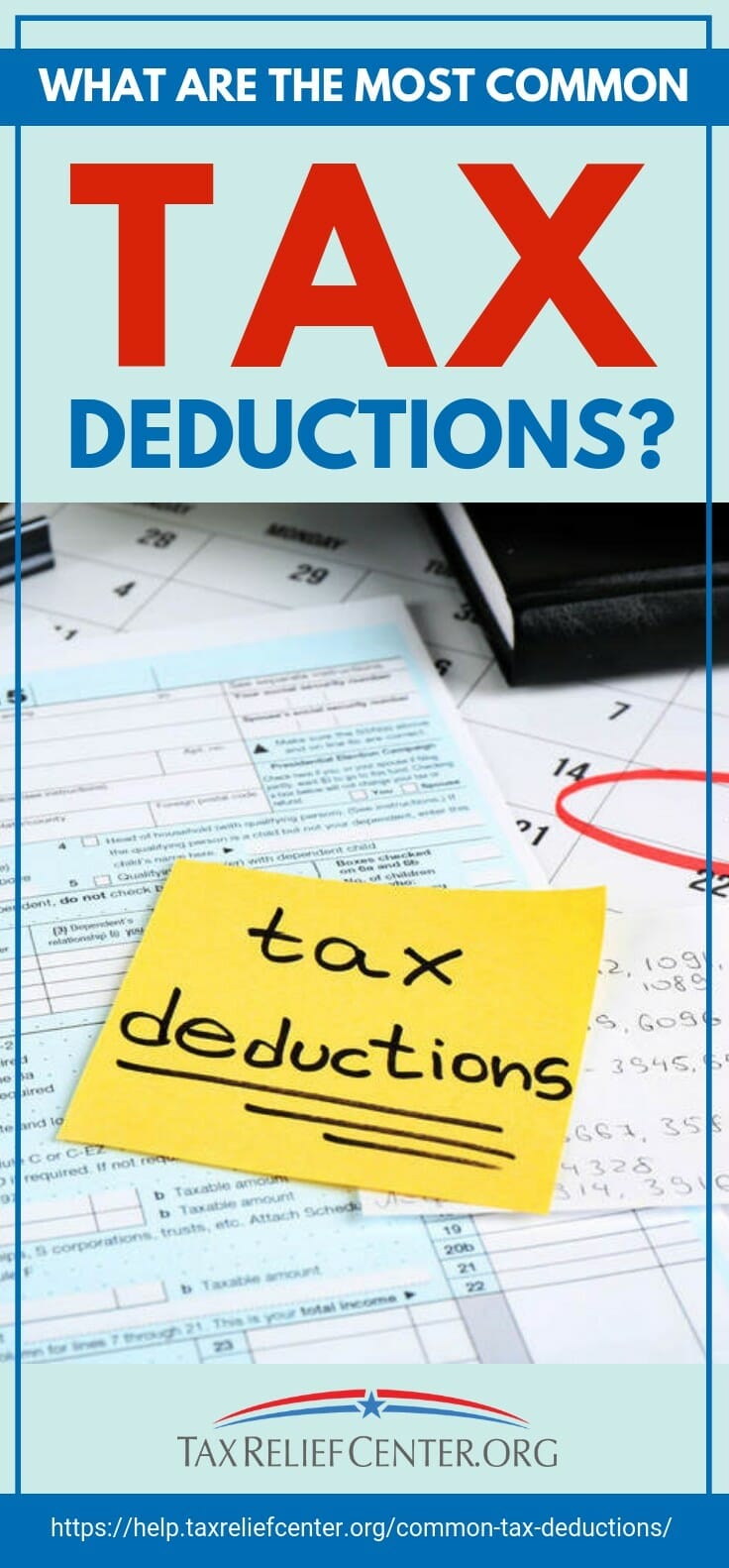Tax deductions reduce the amount you have to pay the IRS. They come in two forms: standard and itemized deductions. The former offers a flat exemption that doesn’t rely on the amount of money you spend. The latter allows you to list down all your expenses and potentially get a significantly higher total deduction. To learn more about the most common tax deductions, check out the list below!
The Most Common Tax Deductions: 13 Ways to Keep Your Earnings Intact
1. Standard Tax Deductions
This is one of the most common tax deductions, with 90% of Americans availing it in 2018. People prefer them because unlike itemization, they don’t involve receipt collection and complex calculations. As of 2017, the threshold for standard tax deductions has increased, thanks to the Tax Jobs and Cuts Act of 2017. For individuals, it’s now $12,000. For heads of families or households, it’s $18,000. Finally, for married couples filing jointly, it’s $24,000.
2. Health Expenses
If you go the itemized route, you can use your health expenses to reduce the amount of taxes you have to pay. These expenses include doctors’ fees, hospital bills, and the cost of acquiring assistive devices like wheelchairs. You can also deduct fares to the hospital, entrance fees for medical conferences, and charges for doctor-prescribed rehabilitation programs. The only condition is that these costs must exceed 10% of your adjusted gross income (AGI) for them to count.
3. Home Business Renovations
If you’re renovating for business purposes, such as adding a home office or crafts workroom, the related expenses are deductible. The same goes for any money you spend on making your home more energy-efficient or disability-friendly. Any non-business related fixes, however, don’t count.
4. Hobby Expenses
Costs related to hobbies that happen to generate income are also deductible. The keyword here is “happen to generate income.” As soon as it becomes evident that you’re doing the hobby with the intention of earning a profit, it is considered a business. This is why coin collecting can count as a hobby while buying and selling cars cannot. With the former, the income is derived from the coins appreciating in value, which is totally out of your control. With the latter, you must actively purchase vehicles and then look for buyers. You get a say as to how much you’ll make and how to run the whole operation.
5. Mortgage Interest
Mortgage interest payments can also be written off. As of 2018, Trump’s tax bill lets you deduct interest on up to $750,000 of mortgage debt. But if you purchased your home before December 15, 2017, you’re qualified for up to $1 million.
6. Donations to Charity
The IRS considers donations to legitimate charities as deductible. Just make sure the organizations you pick are on the IRS’ official list. Also, contributions in the form of volunteer work or donations to individuals can’t be written off. You must donate in cash, and not receive anything in return for it to count.
7. Bad Debt
When you lend someone money and they can’t pay you back, you incur bad debt. If even after exhausting all avenues to get the borrower to pay they are still unable to, this debt is considered worthless and, as a result, deductible. The only catch is that you must also prove that the borrowed amount was a loan and not a gift for it to be valid.
8. Local and State Sales Tax
Most states impose a sales tax, which counts as a tax deduction. The only requirement is that you include receipts for your purchases in your tax report. Keep in mind, however, that income and sales taxes are mutually exclusive. You can only deduct one or the other, not both.
9. State, Local, and Foreign Taxes
Property and income taxes vary from state to state. But in any case, they count against your taxable income. This is true even if you live abroad and pay foreign taxes. However, as of 2018, you’re only allowed to file for a maximum of $10,000 in state and local tax deductions.
10. Contributions to IRA and HSA
The Individual Retirement Arrangement (IRA) is a savings account for your future retirement. The Health Savings Account (HSA), on the other hand, is a tax-exempt fund for medical expenses. Contributions to both these accounts qualify as tax write-offs, but you can deduct HSA payments even if you’ve gone the standard deduction route.
11. Student Loan Interest and Tuition Fees
Tuition fees and payments on student loan interests are also common tax deductions. These expenses count as write-offs whether it’s you, your spouse, or your dependents that incurred them. The maximum amount you can deduct is $4,000.
12. Work-Related Educational Expenses
If your employer requires you to take post-graduate classes, the associated expenses can be written off. These include tuition, books, and other necessary school supplies. Things like meals, lodging, or transportation, however, don’t count.
13. Gambling Losses
Lastly, if you find yourself unlucky at the casino, you can still turn the situation around. Gambling losses count as tax deductions, so you can use them to your advantage. Just list them “Other Miscellaneous Deductions” on your tax form. Keep in mind, however, that if you win one game and lose another, you’ll need to file them separately. You can’t subtract your losses from your wins to reduce your taxes.
Still confused about common tax deductions? Watch the video from ehowfinance below!
These common tax deductions allow you to legally cut back on the total amount you have to pay the IRS. The more you know about them, the more money you can save. So, learn as much as you can about the topic and watch your cash flow go up!
Do you have any questions about common tax deductions? Leave them in the comments section below!
Up Next: What Are Tax Exemptions And What Qualifies As A Tax Exemption?




